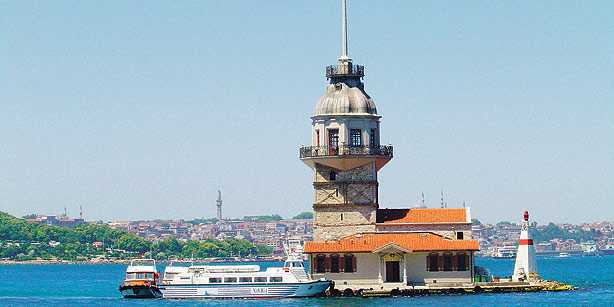International Conference
The Turkic World, the Caucasus, and Iran: Civilisational Crossroads of
Interactions
July 10-12, 2009
Yerevan, Armenia
http://www.armacad.org/civilizationica
The International Journal Iran and the Caucasus
(; Brill: Leiden-Boston), the Department of
Iranian Studies at Yerevan State University, the Makhtumquli Feraqi
Centre for Turkic Studies at ARYA International University (Yerevan),
the Association for the Study of Persianate Societies (Armenian
Branch), in collaboration with the International Society for the Study
of Iran and the Caucasus (ISSIC;
http://www.armacad.org/iranocaucasica), Caucasian Centre for Iranian
Studies (Yerevan), the Armenian-Turkmen Cooperation Centre “Partev”
(Yerevan), and the Armenian Association for Academic Partnership and
Support – ARMACAD (http://www.armacad.org/; Yerevan) are organising an
international conference entitled “The Turkic World, the Caucasus, and
Iran: Civilisational Crossroads of Interactions”.
The Conference will be held on July 10-12, 2009.
Venue: ARYA International University, Yerevan, Armenia.
The region of civilisational interactions from Central Asia to Eastern
Europe and from Southern Russia to Iran has been one of the focal
geographical points in world history. The main cultural, political and
civilisational players in this domain have been the Iranian and Turkic
peoples, while the Caucasus and the Transcaucasian region with their
cultural, ethnographical and linguistic uniqueness have served as a
connecting link and an arena for wars and peaceful cohabitation.
Though the main stress of the conference will be on cultures,
histories (including archaeology, etc.), languages and the literatures
of this vast area, presentations on modern political and regional
issues, as well as the human ecology topics are also welcomed. The
conference seeks to emphasise links between the Turkic world, the
Caucasus, and Iran.
Working languages – English and Russian.
Abstracts (not to exceed 300 words) are to be submitted via the web
form (http://www.armacad.org/civilizationica/abstracts.php) by
February 20, 2009. A brief biography, including contact details, is
also to be included.
Once your materials have been submitted, a confirmation letter will be
returned. If you do not receive a confirmation e-mail within 7 days,
then we have not received your materials. Only in this case, please
contact: [email protected]
A notification of acceptance will be sent by March 30, 2009.
All whose abstracts are accepted for presentation at the conference
have to send to the Conference Organising Committee 10 Euros before
June 10 in order to ensure their participation. This amount of money
will be reduced from the participation fee.
Participation Fee:
The conference participation fee is 70 Euros and a reduced rate of 35
Euros for postgraduate students. Participants from the Caucasus and
Central Asia will pay 35 Euros.
For further information do not hesitate to contact:
Dr. Khachik Gevorgyan,
Secretary of the Organising Committee
[email protected]
Makhtumquli Feraqi Centre for Turkic Studies,
Arya International University
Shahamiryanneri street, 18/2
Yerevan
Armenia
Tel: +374 (10) 44-35-85
Fax: +374 (10) 44-23-07
www.arya.am
Email: [email protected]
International Organising Committee
Prof. Dr. Garnik Asatrian (Yerevan)
Prof. Dr. Uwe Blaesing (Leiden)
Prof. Dr. Ralph Kautz (Vienna)
Prof. Dr. Vladimir Livshits (Saint Petersburg)
Prof. Dr. Levon Zekiyan (Venice)
Prof. Dr. Said Amir Arjomand (New York)
Prof. Dr. Murtazali Gadjiev (Makhachkala)
Prof. Dr. Rovshan Rahmoni (Dushanbe)
Prof. Dr. George Sanikidze (Tbilisi)
Dr. Gulnara Aitpaeva (Bishkek)
Dr. Behrooz Bakhtiari (Tehran)
Dr. Habib Borjian (New York)
Dr. Babak Rezvani (Amsterdam)
Dr. Mher Gyulumian (Yerevan)
Dr. Mahmoud Joneydi Ja’fari (Tehran)
Dr. Seyyed Said Jalali (Tehran)
Dr. Kakajan Janbekov (Ashgabat)
Dr. Filiz Kiral (Istanbul)
Dr. Irina Natchkebia (Tbilisi)
Dr. Vahram Petrosian (Yerevan)
Dr. Tamerlan Salbiev (Vladikavkaz)
Dr. Alexander Safarian (Yerevan)





